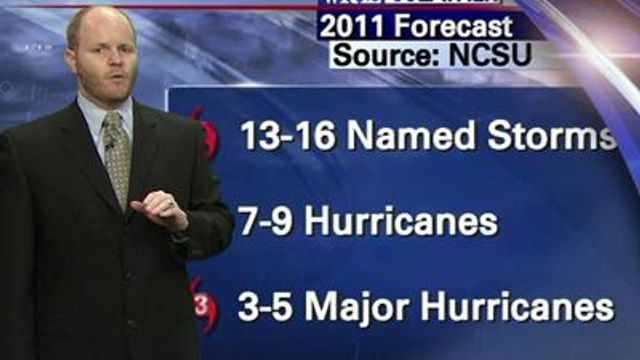Perdue, Obama meet on hurricane preparedness
In a meeting with the president and federal emergency management officials, Gov. Bev Perdue on Wednesday stressed how important the federal government's response is when a state is recovering from a hurricane.
Posted — UpdatedPerdue was joined by state Secretary of Crime Control and Public Safety Reuben Young, state Emergency Management Director Doug Hoell and New Hanover County Emergency Manager Warren Lee.
"Our system works, and that's what we talked to the president about," Perdue said after the meeting. "We're part of this federal team, but we're smart enough as a state to have a state team (of emergency responders) ready to go. And we practice, practice, practice."
The last hurricane to make landfall in North Carolina was Isabel in 2003, but experts says the state seems to be a magnet for hurricanes.
Perdue said she wanted Obama and FEMA officials to know just how important the agency is in the aftermath in the state's recovery.
"The system in Washington understands the need for immediate relief," she said. "Like I've always said, we don't have to exchange business cards on the day of the emergency. We know each other."
The support is needed at home, as well, and there is concern about potential state budget cuts, especially those that affect agencies that respond to these storms.
"Budget cuts across the board to another agency affect us, because we rely on them when we activate," Young said.
Government forecasters have predicted that as many as 18 named tropical storms will form in the Atlantic Ocean basin, including three to six major hurricanes with winds of 111 mph or higher. North Carolina State University researchers predicted 13 to 16 named storms, with seven to nine growing into hurricanes.
This year, there's a 70 percent chance that a storm will make landfall on the coast of the southeastern U.S., a 40 percent chance that it will be a hurricane when it hits the coast and a 15 percent chance it will be a major hurricane, according to N.C. State researchers.
"When you get these high levels of activity, the likelihood of a hurricane striking the U.S. goes up quite a bit," said Gary Bell, lead seasonal hurricane forecaster at the National Oceanic and Atmospheric Administration's Prediction Center.
In any given year, there's a 33 percent chance that a tropical storm or hurricane will track directly over North Carolina, according to the National Weather Service.
Hurricane season in the Atlantic Ocean basin starts June 1 and lasts for six months.
• Credits
Copyright 2024 by Capitol Broadcasting Company. All rights reserved. This material may not be published, broadcast, rewritten or redistributed.






